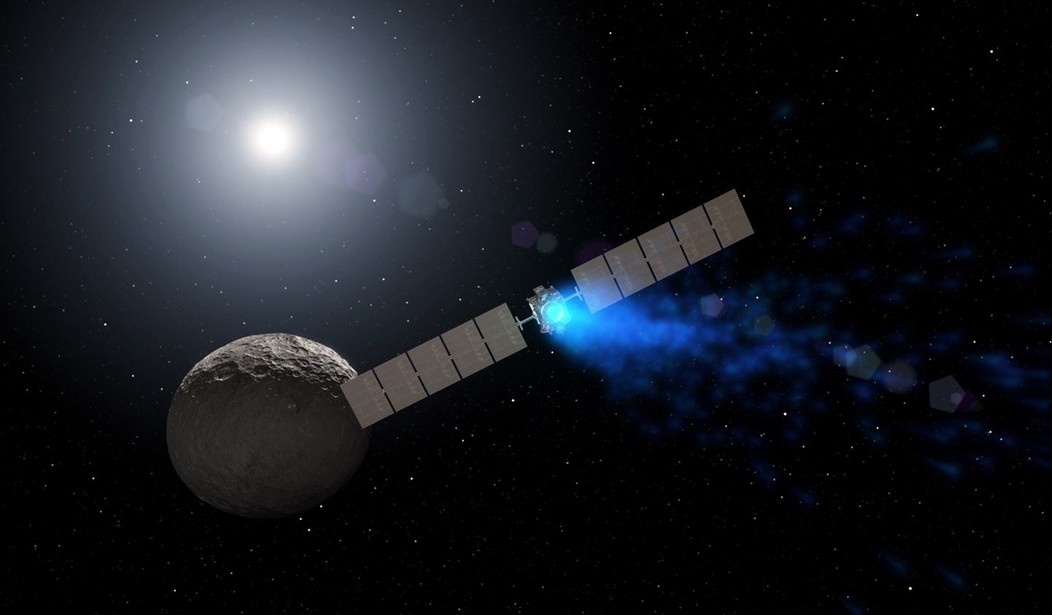Turning to a slightly lighter topic than all the rest of the news cluttering up the headlines, imagine for a moment that there’s a gigantic asteroid heading on a direct collision course with the Earth. What do we do about it? Stealing a page from movies like Armageddon and Deep Impact, researchers with Lawrence Livermore National lab are teaming up with the United States Air Force to test out the idea of trying to deflect an asteroid with a nuclear explosion. But they’re not necessarily talking about blowing up the giant rock, at least not if there’s another option on the table. And they think there might be. This goes against virtually every bit of advice we’ve heard from scientists in the past when they’re asked if those Hollywood scenarios might really be possible, but apparently, some of them have been rethinking the question. (CBS San Francisco)
Lansing Horan IV, a member of the team, said the research was focused on the neutron radiation from a nuclear detonation since neutrons can be more penetrative than X-rays.
“This means that a neutron yield can potentially heat greater amounts of asteroid surface material, and therefore be more effective for deflecting asteroids than an X-ray yield,” he said.
Horan said there are two basic options in defeating an asteroid: disruption or deflection.
Why are we talking about this now? C’mon, man… after the way 2020 played out and now how 2021 is starting, would the announcement of an incoming asteroid strike really be all that shocking?
The two methods of using nukes in this fashion apparently boil down to a question of deflection versus disruption. To deflect an asteroid off of its current trajectory, these scientists are talking about detonating a neutron bomb very close to the rock. The neutron radiation would heat up one side of the asteroid, causing it to outgas, sending jets of displaced gases out of that side. This would create a sort of propulsion, slowly pushing the rock onto a new course, presumably missing the Earth when it reached our neighborhood.
But if the asteroid is too close and there isn’t time to steer it away, the other alternative is “disruption.” That means just what you’re probably already thinking. They’re talking about blowing it up. In the past, we have been advised that this is a terrible idea because we would just turn one falling object into many. This team sees things differently, however. Their studies indicate that blowing up the asteroid in a sufficiently robust fashion would cause more than 99.5 percent of the rock’s original mass to miss the Earth.
While this team isn’t bringing the subject up, I’ve wondered in the past if busting up an asteroid still wouldn’t be the better option, even at relatively close range. After all, the smaller pieces would burn up in the atmosphere, right? And taking a larger number of big, but not massive hits spread across half of the globe would still have to be more survivable (as a species) than taking one monstrous hit like the one that wiped out the dinosaurs.
What’s left unsaid in this report is how they plan on testing this idea before we actually need to use it. I assume it’s all going to be computer simulations. I somehow don’t think that anybody is going to sign off on giving Elon Musk a couple of nukes to go fire off in space just to measure what happens.








Join the conversation as a VIP Member